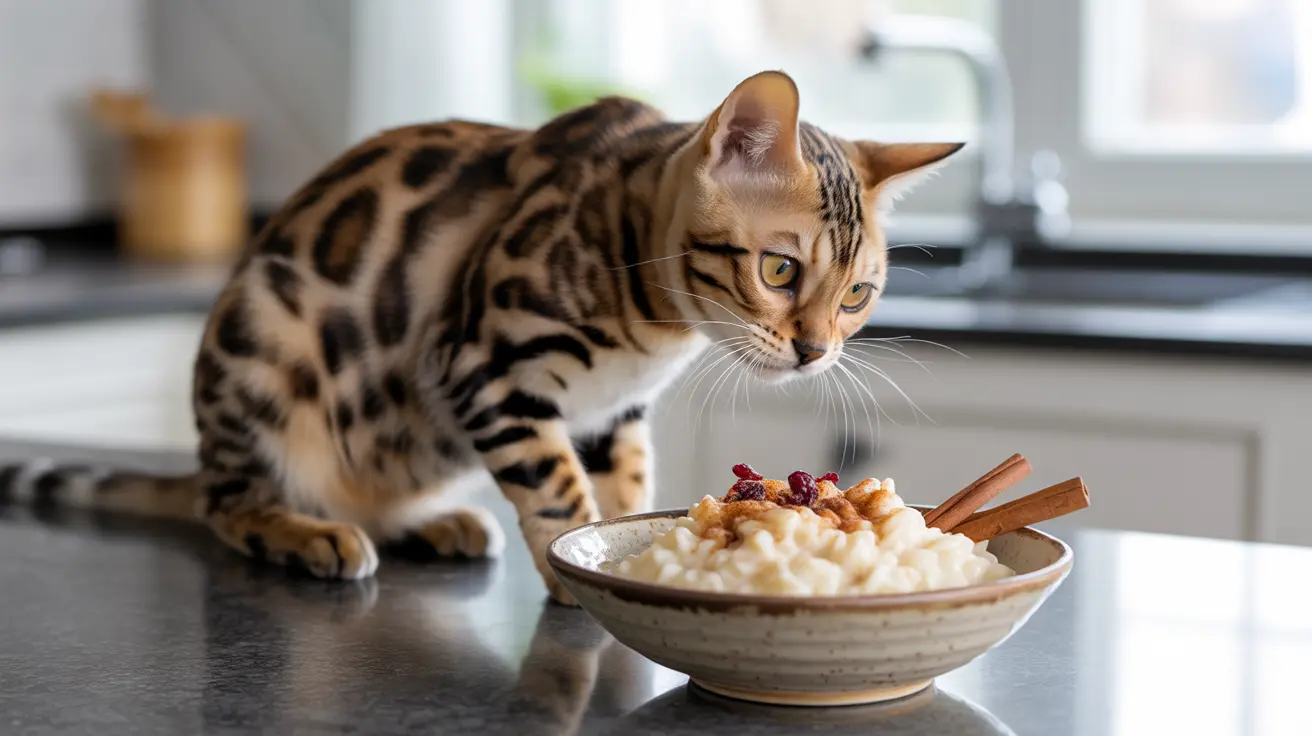Why Rice Pudding Is Dangerous for Cats
Rice pudding contains several ingredients that can be harmful or even toxic to cats. Understanding these risks is crucial for responsible pet ownership.
Dairy Components and Lactose Intolerance
Most adult cats are lactose intolerant, lacking the necessary enzymes to properly digest dairy products like milk and cream - key ingredients in rice pudding. Consuming these can lead to uncomfortable digestive issues including diarrhea, vomiting, and stomach upset.
Sugar and Carbohydrate Concerns
Cats are obligate carnivores with no biological need for sugars or complex carbohydrates. The high sugar content in rice pudding can contribute to:
- Obesity
- Diabetes
- Dental problems
- Digestive disruptions
Toxic Ingredients to Watch For
Many rice pudding recipes include additional ingredients that are toxic to cats:
- Raisins (can cause kidney failure)
- Vanilla extract (contains alcohol)
- Artificial sweeteners like xylitol
- Cinnamon (toxic in large amounts)
Safe Alternatives to Rice Pudding
Instead of rice pudding, consider these cat-safe treats:
- Small pieces of plain cooked chicken
- Tiny bits of cooked fish
- Commercial cat treats
- Small amounts of plain, cooked rice (occasional only)
What to Do If Your Cat Eats Rice Pudding
If your cat consumes rice pudding, take these steps:
- Check the ingredients list
- Monitor for symptoms of distress
- Contact your veterinarian immediately if the pudding contained toxic ingredients
- Never induce vomiting without veterinary guidance
Frequently Asked Questions
Can cats safely eat rice pudding or is it harmful to them?
No, cats cannot safely eat rice pudding. The combination of dairy, sugar, and potentially toxic ingredients makes it harmful for feline consumption.
Why is rice pudding bad for cats, especially regarding ingredients like milk and raisins?
Rice pudding is bad for cats because most adult cats are lactose intolerant, and ingredients like raisins can cause severe kidney damage. The high sugar content is also inappropriate for cats' digestive systems.
What symptoms should I watch for if my cat accidentally eats rice pudding?
Watch for vomiting, diarrhea, lethargy, excessive thirst, reduced appetite, and changes in urination. If the pudding contained raisins or xylitol, seek immediate veterinary care.
Is plain cooked rice safe for cats, and how much can they have?
Plain, cooked rice is generally safe for cats in very small amounts. However, it should only be given occasionally and should never replace their regular meat-based diet.
What should I do if my cat consumes rice pudding containing toxic ingredients like raisins or xylitol?
Contact your veterinarian immediately. Don't wait for symptoms to appear, as early intervention is crucial, especially with toxic ingredients like raisins or xylitol.
The Bottom Line
While it might be tempting to share your dessert with your feline friend, rice pudding should never be given to cats. The risks far outweigh any potential enjoyment your cat might get from this treat. Stick to veterinary-approved treats and maintain a proper feline diet to keep your cat healthy and safe.






